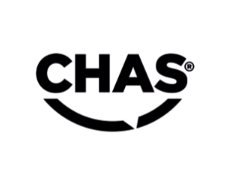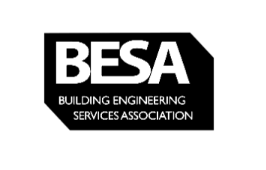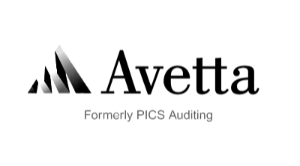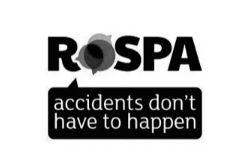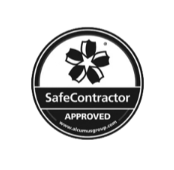phs Group has acquired Citron Hygiene UK - we’re here to support you. Read our customer FAQs and find our contact details here.
Dental surgeries handle various types of waste every day. From needles for anaesthetic to extracted teeth, hazardous, biomedical, and sharps waste items must be disposed of properly.
To ensure your clinic is following best practices, we’ve put this dental waste management guide together. Find all you need to know, and don’t hesitate to contact phs to arrange hygiene waste collection that will keep your business compliant with UK guidelines.
Why is it important to handle dental waste properly?
The dental industry involves tools, materials, and waste that can be harmful to patients, staff, and the environment if disposed of incorrectly.
These include:
- Sharps: Needles, scalpel blades, and other sharp instruments pose injury and cross-contamination risks, so they need to be disposed of in dedicated sharps bins.
- Chemicals: From X-ray developers to cleaning products, dental clinics use a range of chemicals that can be hazardous to people and the environment.
- Biomedical waste: Extracted teeth, blood, and used items like medical gloves or dressings count as clinical waste. These materials could be infectious, so any contaminated waste must be handled very carefully.
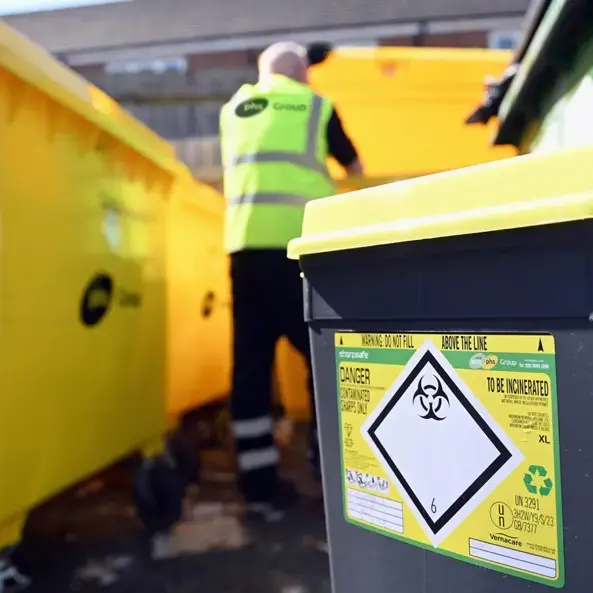
- Amalgam: Dental amalgam waste comes from fillings and contains a mixture of mercury and other metals. Mercury is a toxic material that can leach into water and soil, harming the environment and anyone who comes into contact with it.
- Gypsum: Gypsum is often used to create dental moulds and, while it isn’t directly harmful in itself, if it mixes with biological waste in landfill, it can release toxic and odorous hydrogen sulfide gas.
- General waste: While packaging, paper, and other general waste may not pose health and safety risks, it’s still important to manage it responsibly to reduce the amount going to landfill.
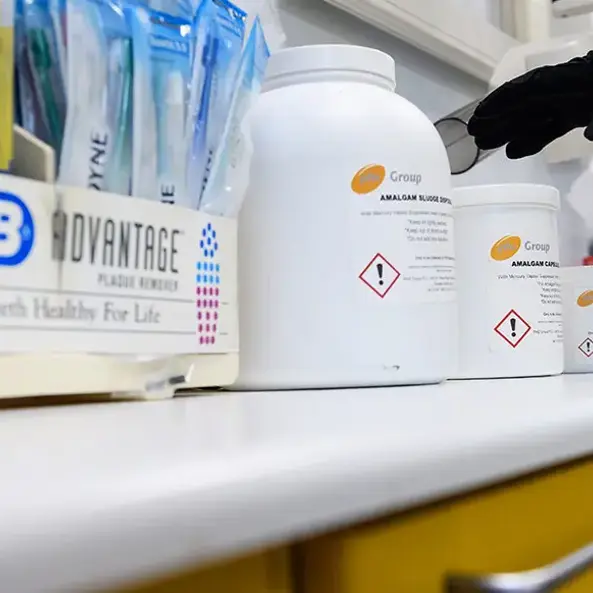
What dental waste disposal guidelines do UK clinics need to adhere to?
In the UK, there are several pieces of legislation designed to ensure dental teams segregate, treat, and dispose of dental waste safely.
- Under the Environmental Protection Act 1990, dental practices have a duty of care to store and handle waste properly and to make sure any companies collecting it are authorised.
- The Hazardous Waste Regulations 2005 in England and Wales, and the Special Waste Regulations in Scotland stipulate that any businesses generating hazardous waste (including sharps, amalgam, and chemical waste) must segregate and label waste. They must also send it to a licensed facility.
- The Health and Safety (Sharp Instruments in Healthcare) Regulations 2013 require dental practices to provide sharps containers and ensure all staff have up-to-date training to help reduce the risk of cuts, injuries, and contamination.
- COSHH (Control of Substances Hazardous to Health) guidelines apply to a range of healthcare settings, including dental practices. Staff must assess risks of any hazardous materials present, ensure correct storage and disposal, and make sure the right protective personal equipment (PPE) is used.
- The Environment Act 2021 is a broader legislation that encourages businesses (including dental surgeries) to handle waste as environmentally responsibly as possible through recycling and other measures.
- When it comes to dental amalgam waste, there is a specific directive that needs to be followed. One of the key requirements of EU Regulation 2017/852 is that dental practices must use amalgam separators to contain at least 95% of amalgam waste. It must then be sealed and stored separately from other waste, and collected only by licensed waste companies.
Tips for dental waste best practices
To make sure your practice is compliant with the dental waste disposal guidelines discussed above, we recommend taking note of the following tips.
1. Make sure staff members have adequate training
It’s vital that all team members have up-to-date training in health and safety so they are aware of the unique risks faced in a dental setting and how to handle them.
2. Ensure dental amalgam separators are in place
Dental amalgam waste can be a result of fillings, extractions, and various other procedures. Small particles containing mercury can make their way into the water system, leading to contamination.
Dental amalgam separators filter out these particles so that only uncontaminated wastewater passes through your drainage system.
3. Use colour-coding for waste segregation
Segregating waste streams is a vital part of dental waste management. Using colour-coded bags and containers can help you keep track of waste and ensure each type is being processed in line with regulations.
- Yellow signifies hazardous materials, and is used for sharps bins that contain needles contaminated with medical products (such as anaesthetics).
- Orange bags usually hold soft clinical waste, including swabs and gauze.
- White typically indicates non-hazardous materials, such as gypsum.
- White containers may also indicate highly hazardous materials, including dental amalgam waste. In this case, the bags or containers will usually feature a skull and crossbones.
- Black bags are usually used for general mixed waste.
- Blue bags contain non-hazardous medicinal waste, including blister packs, out-of-date medication, and anaesthetic cartridges.
4. Ensure secure waste storage
Once segregated, all waste should be secured carefully, away from public access. Make sure you have the right containers for the waste type, for example:
- Waste chemicals must be stored in secure, leak-proof containers, like our X-Ray Fixer and Developer Containers.
- Captured amalgam must be placed in dedicated containers. Our Amalgam Storage solutions feature a mercury suppressant that lowers the risk of vapour inhalation.
- To prevent gypsum from mixing with other landfill waste, which creates a chemical reaction, it should be stored in dedicated Cardboard Containers.
5. Invest in a mercury spill kit
Having a Mercury Spill Kit to hand means that any accidental spillages can be cleaned quickly and safely.
Stay compliant with dental waste management solutions from phs
The team at phs is here to ensure your dental surgery handles waste safely and in line with UK regulations.
We can provide specialist waste storage and disposal services to keep all staff and patients safe. Please get in touch to speak with one of our experts.






























